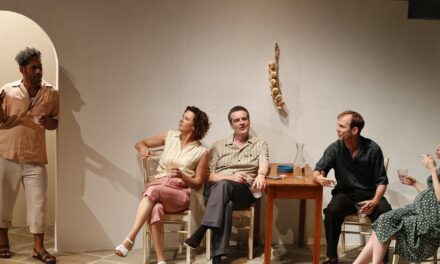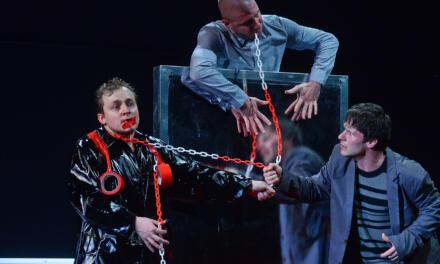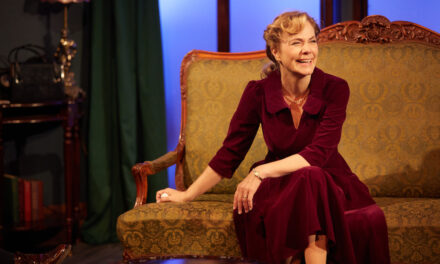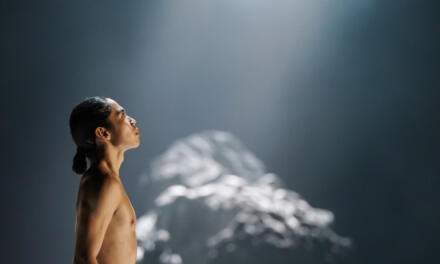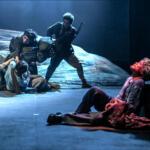Adapted from Lu Xun’s novel, the play takes the same name, Zhu Jian (Forging the Swords), and has become one of the most popular productions at the Edinburgh Festival Fringe 2024. The work was brought to Edinburgh by a group of student actors from the Central Academy of Drama in China. Director Fengrui Yang is currently pursuing his doctoral training at the Academy. The play is notable for its re-examination of the theme of vengeance, a central idea in Lu Xun’s novel. Lu Xun is one of the most influential authors in modern China featured with his social criticism writing style in the 1920s.
The story revolves around the protagonist, Meijianchi, as he navigates his growth and seeks vengeance for his father’s death, sparking a debate on whether hatred and vengeance should be passed down to the next generation. Meijianchi’s father was killed by the King of Chu, but he and his mother managed to escape being murdered. Sixteen years later, Meijianchi is urged by his mother to kill the King of Chu and avenge his father. However, Meijianchi grapples with the decision of whether to kill the King of Chu for a father he never knew. When pushed to exact revenge, General Yanzhiao, a friend of his father, tells Meijianchi, “We live for those who have died.” This led to Meijianchi committing his suicide to ease his inner world struggles. The play culminates in a poignant exchange between Meijianchi’s ghost and his father’s ghost, where Mei’s father questions the wisdom of leaving behind a powerful sword capable of killing the King of Chu.
Lu Xun’s original novel carries strong political undertones from the turbulent era of modern China in the 1920s, reflecting his views on the cruel relationship between the individual and society in turmoil. This thematic continuity is also evident in Lu Xun’s renowned work, Diary of a Madman, where he critiques the brutal social cannibalism prevalent in the society, stating that “people are being eaten by society.”
The performance of the play is particularly captivating, featuring a blend of various forms of Chinese performing arts. Act One is characterized by physical theatre, with actors employing a mimetic style; Act Two showcases a character performing in the Chou (clown) style, surprising British audiences; Acts Three, Four, and Five advance the storyline through dialogue and Chinese dance; Acts Six and Seven serve as the climax, incorporating Chinese martial arts with swordplay; Acts Eight and Nine utilize Chinese ritualistic theatre, including Nuoxi (Nuo opera) and puppetry, to facilitate interaction between the ghosts after the protagonists died. This play provides an enriching experience for international audiences, showcasing how young practitioners are incorporating traditional Chinese theatre techniques into their artistic expressions.
This post was written by the author in their personal capacity.The opinions expressed in this article are the author’s own and do not reflect the view of The Theatre Times, their staff or collaborators.
This post was written by Xunnan Li.
The views expressed here belong to the author and do not necessarily reflect our views and opinions.


